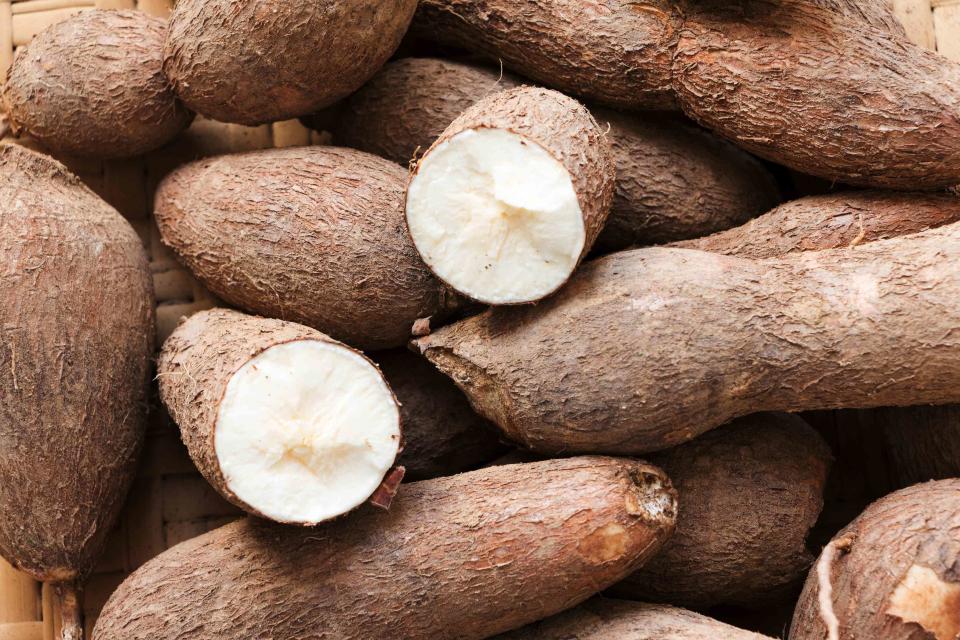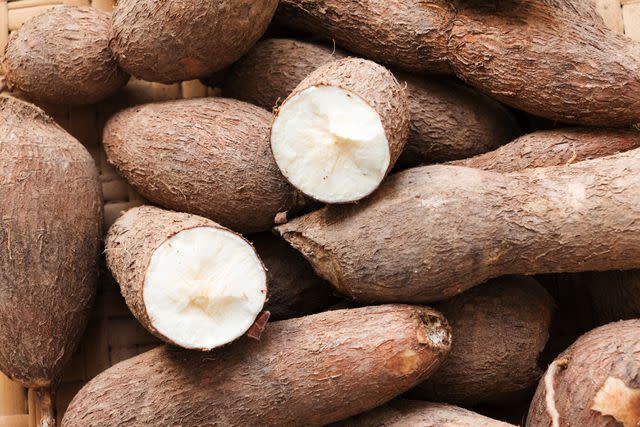What Exactly Is Tapioca?
A plant-based starch commonly found in boba tea

photograph by dorisj / Getty Images
Medically reviewed by Melissa Nieves, LND, RD
Tapioca is a starch derived from the root of the cassava plant. A starch is an odorless, tasteless white powder obtained from plants that is an important carbohydrate source in the human diet. Tapioca is naturally vegan, gluten-free, and grain-free, and can be an important part of many diets.

photograph by dorisj / Getty Images
Where Tapioca Comes From
Tapioca is a starch extracted from the cassava plant's root. Cassava, also called yuca, is a tuberous root vegetable from South America. To make tapioca, cassava root is ground into a pulp. Liquid starch is extracted from the ground cassava and dried into a starchy powder to form tapioca.
Tapioca Nutrition Profile
Tapioca is entirely starch, made up of almost purely simple carbohydrates with hardly any trace of protein, fat, or minerals. Starch is a basic source of energy that powers cells of the body and is typically digested quickly.
Tapioca is commonly used as a flour in baking or as a thickener in soups or stews. Tapioca can also be mixed with sugar or other sweeteners to produce boba (tapioca pearls or balls) used in bubble tea. Tapioca starch is also used to bind tablets together to make certain medications.
Is Tapioca Gluten-Free or Vegan?
Tapioca is naturally gluten-free since the cassava root does not contain gluten protein. Tapioca starch, or flour, is also grain-free since the product is derived from the cassava root vegetable and not grains. Tapioca is vegan as it is sourced from cassava root and does not involve the processing of animal products.
Read Next:Stores and Websites That Sell Gluten-Free Food
Tapioca Health Benefits
Because tapioca is pure starch, it has little nutritional benefits since it's made up of carbohydrates with little protein, fat, or minerals.
Because tapioca can be used to replace other flours or thickeners like corn starch, it can be an important staple for cooking and baking for people following gluten-free and grain-free diets.
Tapioca Side Effects
There are no significant side effects associated with tapioca consumption. However, any cassava-based product can pose the risk of cyanide poisoning.
The skin of the cassava root naturally contains a toxic compound called linamarin that converts to cyanide in the body and can lead to cyanide poisoning. If cassava or products like tapioca made from cassava contain high levels of linamarin, a paralyzing disease called konzo can result.
Cases of konzo are typically only seen on the continent of Africa in places where cassava may be improperly processed. Commercially produced cassava and tapioca typically undergo more rigorous processing and are unlikely to contain harmful levels of linamarin.
Summary
Tapioca is a starch derived from the cassava root plant. It is often used as a thickener in soups or stews, as a gluten-free and grain-free flour for baking, or to make boba used in bubble tea. Because it is almost purely starch, it has little health or nutritional benefits but can be used as a staple in everyday cooking, especially in gluten-free and grain-free diets.

